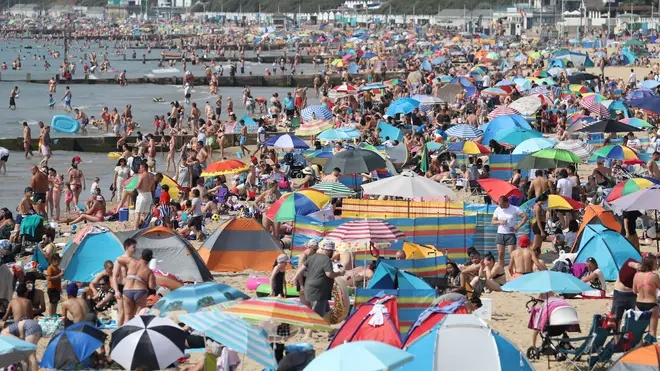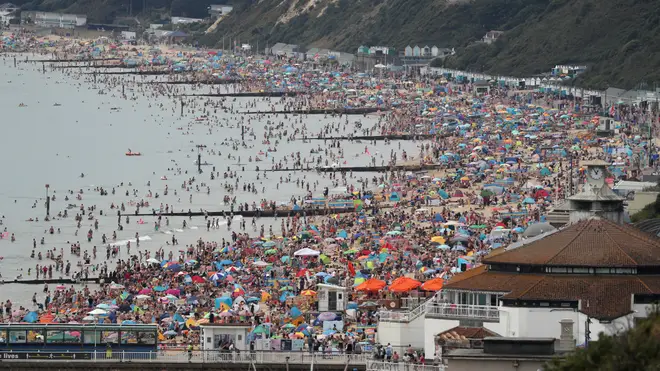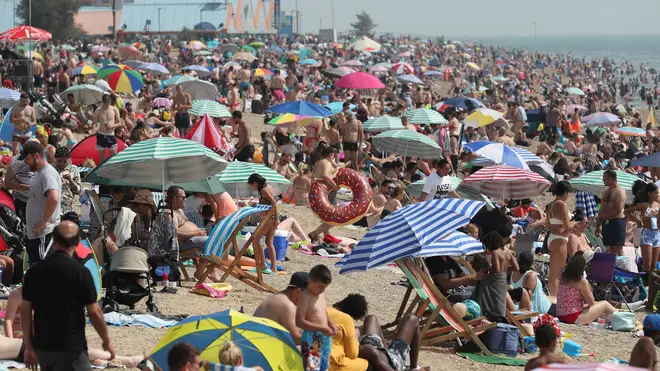
Iain Dale 7pm - 10pm
17 February 2021, 12:19 | Updated: 17 February 2021, 13:01

There were no Covid-19 outbreaks linked to crowded beaches in the UK last summer, a leading scientist has told MPs.
Professor Mark Woolhouse's comments to the Science and Technology Committee raise hopes that beach trips could be allowed in the UK over the summer.
Prof Woolhouse, from the University of Edinburgh and who sits on a sub-group advising SAGE, said: “Over the summer we were treated to... pictures of crowded beaches, and there was an outcry about this."
READ MORE: Lift lockdown earlier as vaccination data are 'so good,' top scientist tells MPs
READ MORE: UK approves world first 'human challenge' study to infect people with Covid-19
He added: “There were no outbreaks linked to crowded beaches. There's never been a Covid-19 outbreak linked to a beach ever in the world to the best of my knowledge.

“I think we do have to understand where the risks are and aren’t so that we can do as much as possible safely without overcompensating.”
However hopes of travelling abroad for a summer holiday were dampened, with SAGE scientist Professor Dame Angela McLean, the chief scientific adviser at the Ministry of Defence, saying: “The evidence was, from earlier in the outbreak, many cases were imported from Europe by returning holidaymakers.

“It wasn’t mainly imported from China. I think we could learn from that.”
Prof Woolhouse was also asked about organised mass gatherings, and specifically Cheltenham Festival, which was allowed to go ahead in March last year 10 days before lockdown measures were brought in.

He said: “Mass gatherings are absolutely a special case for all sorts of reasons, even outdoors they don’t involve social distancing, they also involve pinch points like travel, like refreshment facilities and so on, so those are clearly higher risk than normal outdoor activities.”
Asked if the festival led to a surge in cases, he said: “I don’t know because at that stage it would have been hard to trace.”